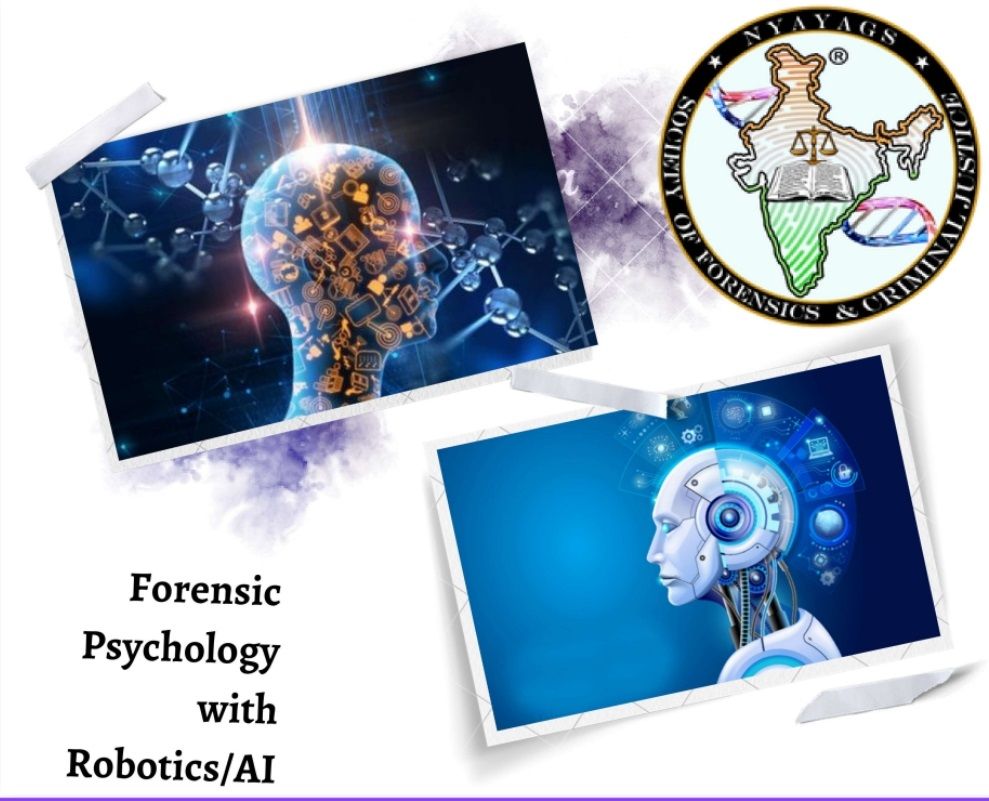Forensic psychology is the intersection of psychology & the law. In recent years, the field of forensic psychology has been significantly impacted by advancements in robotics and AI. This topic has become increasingly important as advancements in technology and data analysis are changing the way criminal investigations are conducted. how AI and forensic psychology are being used to improve criminal profiling, analyze evidence, and identify suspects, ultimately transforming the criminal justice system. These technologies are changing the way we investigate and understand criminal behavior, and they are enabling us to make more accurate and reliable predictions about the likelihood of future criminal activity.

The Current Role of Robotics/AI in Forensic Psychology:
Robotic technology is having a significant impact on forensic psychology. One way that robotics is being used in the field is through the development of autonomous robots that can be used to gather evidence at crime scenes. These robots can be programmed to navigate complex environments and collect forensic evidence, such as DNA samples, fingerprints, and photographs. This technology is particularly useful when human investigators are at risk, such as in hazardous environments or active crime scenes. Another way that robotics is being used in forensic psychology is through the development of humanoid robots that can interact with human subjects. These robots are being used in psychological experiments to study human behavior and decision-making, and they are also being used in therapeutic settings to help individuals with mental health issues.
Artificial intelligence (AI) is increasingly important in forensic psychology. One way that AI is being used in the field is through the development of predictive algorithms that can be used to assess the risk of criminal behavior. These algorithms are trained on large datasets of criminal histories, and they can identify patterns and trends that human experts may miss. This technology is particularly useful in the criminal justice system, where judges and parole boards can use these algorithms to make more informed decisions about sentencing and release. Another way AI is used in forensic psychology is by analyzing social media data. Social media platforms are a treasure trove of information about individuals, and AI algorithms can be used to analyze this data to gain insights into an individual’s behavior and thought processes.
Potential Advancements in Robotics/AI in Forensic Psychology:
As the use of robotics and AI becomes more prevalent in the field of forensic psychology, we must establish clear ethical guidelines and standards. For example, researchers must ensure that they obtain informed consent from study participants before using robots or AI algorithms in psychological experiments. Additionally, we must address issues of bias and discrimination in the data used to train predictive algorithms.
One potential solution to these concerns is to promote interdisciplinary collaboration between forensic psychologists, computer scientists, and ethicists. By working together, these experts can develop effective and ethical technologies. In addition, policy makers and legal experts need to be informed about the use of robotics and AI in forensic psychology to ensure that they can make informed decisions about the regulation of these technologies. Potential ethical considerations that need to be addressed, such as privacy concerns. Discuss potential ethical considerations that need to be addressed: Concerns about the reliability and accuracy of predictive algorithms and the potential for bias and discrimination in the data used to train these algorithms. There are also concerns about the use of social media data, and whether individuals have a right to privacy in this context.
Disadvantages of AI:
Manipulation of behavior: the users’ intense interaction with data systems and the deep knowledge about individuals this provides, they are vulnerable to “nudges”, manipulation, and deception. Algorithms can be used to target individuals or small groups with sufficient prior data. Improved AI “faking” technologies make what once was reliable evidence into unreliable evidence this has already happened to digital photos, sound recordings, and video. It will soon be quite easy to create (rather than alter) “deep fake” text, photos, and video material with any desired content. One more specific issue is that machine learning techniques in AI rely on training with vast amounts of data. This means there will be privacy and rights to data vs. the technical quality of the product.
